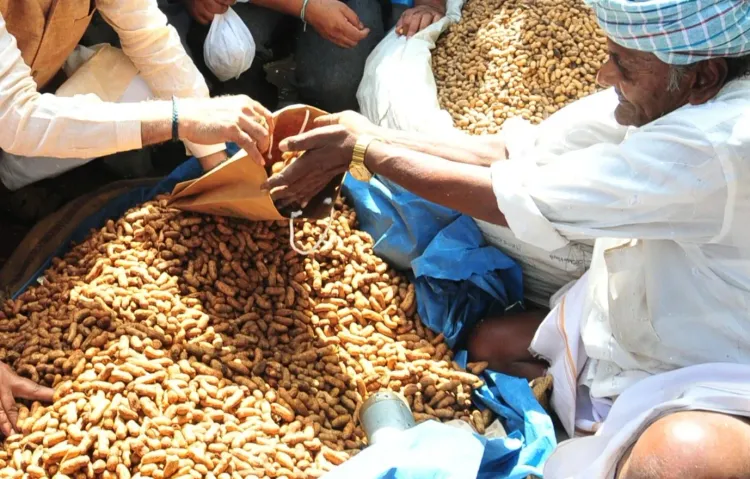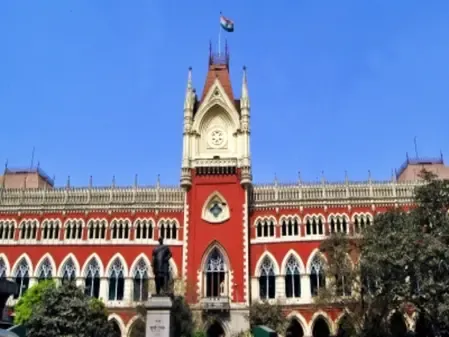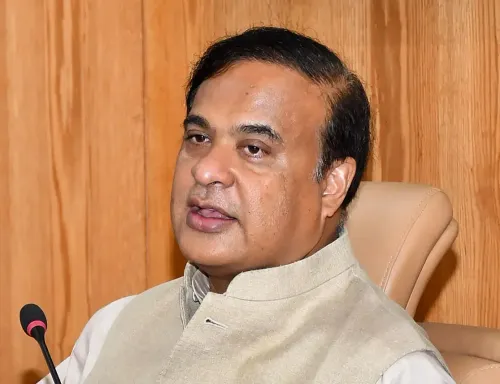Why Are Urea and Fertilizer Prices Soaring in Karnataka?

Synopsis
Key Takeaways
- Urea prices have doubled due to shortages.
- Farmers are facing distress and staging protests.
- The Karnataka government is requesting additional urea supplies.
- Traders are accused of hoarding fertiliser.
- Small farmers are the most affected by the crisis.
Bengaluru, July 26 (NationPress) The ongoing shortage of urea and various fertilisers in Karnataka has compelled traders to sell these vital inputs at prices that are twice the normal rates, plunging the farming community into a state of distress.
Farmers, who were initially optimistic about a fruitful harvest due to favorable rains and the early arrival of the monsoon this year, are now disheartened and have resorted to staging protests.
This situation has intensified tensions between the Congress-led Karnataka government and the Central government. Chief Minister Siddaramaiah has reached out to Union Minister for Health and Family Welfare and Chemicals & Fertilisers, J.P. Nadda, requesting the prompt delivery of 1.65 lakh metric tonnes of urea fertiliser as allocated to the state, emphasizing the need for farmers.
Union Minister for Food, Public Distribution, and Consumer Affairs, Pralhad Joshi, has sharply criticized Chief Minister Siddaramaiah, accusing him of misleading the people of Karnataka with incorrect statements about fertiliser availability.
The Department of Fertilisers (DoF) clarified that it has ensured the timely and sufficient supply of 8.73 lakh metric tonnes of urea to Karnataka, against a pro-rata requirement of 6.30 lakh metric tonnes for the ongoing Kharif 2025 season.
During this period, the state has recorded sales of 7.08 lakh metric tonnes—significantly exceeding the pro-rata need. The DoF stated that it continues to closely monitor the situation and is collaborating with the state government to ensure that farmers in Karnataka have timely access to urea throughout the Kharif season.
Nevertheless, thousands of farmers are queuing outside shops to obtain urea fertiliser for sowing. Urea is a crucial agricultural input, serving as the primary source of nitrogen, an essential nutrient for plant growth. It plays a vital role in enhancing crop yields and improving produce quality by boosting foliage, chlorophyll synthesis, and overall productivity.
Urea is generally applied during sowing and as a top dressing during the crop's vegetative growth phase. With sowing already underway due to favorable rainfall, farmers urgently require urea application in their fields. Without it, crops face the risk of stunted growth, yellowing leaves, and drastically reduced yields.
Long lines of farmers have been seen at fertiliser shops in hobli, taluk, and district headquarters throughout Karnataka, particularly in the northern regions. Due to the shortage, shop owners are rationing supplies, limiting sales to just two 50-kilogram bags per farmer. While urea and other essential fertilisers are also available at fair price shops, many have already run out of stock.
There are widespread allegations that private traders are taking advantage of the crisis by hoarding urea and selling it at inflated prices. Farmers claim that even when shopkeepers display “no stock” signs, they are willing to provide unlimited urea if buyers agree to pay Rs 500 per bag, whereas the actual price is between Rs 250 and Rs 300.
In Koppal district, farmers blocked roads to protest the shortage, and in Haveri district, they confronted officials regarding the two-bag limit. In some areas, agitated farmers have prevented trucks from unloading urea into shops, demanding direct sales from the vehicles. Allegations persist that traders are hoarding fertiliser to create artificial scarcity and raise prices.
Small and marginal farmers are the most affected. They cannot afford the exorbitant rates set by black marketeers and face the risk of losing their crops.
This current crisis recalls a tragic incident from 2008, when a 33-year-old man was killed by police during a protest over fertiliser shortages in Haveri district. The shooting, intended to disperse the agitated crowd, occurred shortly after former Chief Minister B.S. Yediyurappa took office, shaking the state government, especially since Yediyurappa had taken his oath in the name of farmers after leading the BJP to victory for the first time in South India.
Yediyurappa had subsequently blamed the UPA government at the Centre for the fertiliser shortage.









